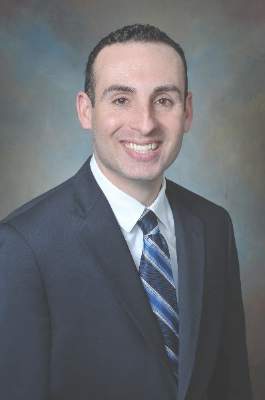User login
VIDEO: Determining your practice’s fair market value in a quality-based world
AUSTIN, TEX. – The shift from fee-for-service to value-based health care raises important questions about determining a physician practice’s fair market value, according to financial analyst Albert “Chip” D. Hutzler.
How will the new systems impact valuation? What about commercial reasonableness of arrangements? In a video interview at an American Health Lawyers Association meeting, Mr. Hutzler of HealthCare Appraisers, Delray, Fla., discussed the intersection of fair market value and value-based care, and he offered guidance on how to prepare for the changes.
The video associated with this article is no longer available on this site. Please view all of our videos on the MDedge YouTube channel
On Twitter @legal_med
AUSTIN, TEX. – The shift from fee-for-service to value-based health care raises important questions about determining a physician practice’s fair market value, according to financial analyst Albert “Chip” D. Hutzler.
How will the new systems impact valuation? What about commercial reasonableness of arrangements? In a video interview at an American Health Lawyers Association meeting, Mr. Hutzler of HealthCare Appraisers, Delray, Fla., discussed the intersection of fair market value and value-based care, and he offered guidance on how to prepare for the changes.
The video associated with this article is no longer available on this site. Please view all of our videos on the MDedge YouTube channel
On Twitter @legal_med
AUSTIN, TEX. – The shift from fee-for-service to value-based health care raises important questions about determining a physician practice’s fair market value, according to financial analyst Albert “Chip” D. Hutzler.
How will the new systems impact valuation? What about commercial reasonableness of arrangements? In a video interview at an American Health Lawyers Association meeting, Mr. Hutzler of HealthCare Appraisers, Delray, Fla., discussed the intersection of fair market value and value-based care, and he offered guidance on how to prepare for the changes.
The video associated with this article is no longer available on this site. Please view all of our videos on the MDedge YouTube channel
On Twitter @legal_med
AT THE PHYSICIANS AND HOSPITALS LAW INSTITUTE
VIDEO: How to navigate value-based care payer contracts
AUSTIN, TEX. – The shift from volume- to value-based care has become a regular hot topic among the medical community. But one rarely discussed question is how quality-based care will impact physician contracts with health plans, according to Bloomfield Hills, Mich., health law attorney Mark S. Kopson.
In a video interview at an American Health Lawyers Association meeting, Mr. Kopson discusses how to navigate payer contracts when operating within value-based care models. He addresses ideal terms to include in quality-based care contracts and how to mitigate legal risks with health plans.
“The contract language that works in volume-based contracts doesn’t work in value-based contracts,” Mr. Kopson explains. “We have to make a distinction between the two and recognize that there are risks and issues that have to be addressed in value-based arrangements.”
The video associated with this article is no longer available on this site. Please view all of our videos on the MDedge YouTube channel
On Twitter @legal_med
AUSTIN, TEX. – The shift from volume- to value-based care has become a regular hot topic among the medical community. But one rarely discussed question is how quality-based care will impact physician contracts with health plans, according to Bloomfield Hills, Mich., health law attorney Mark S. Kopson.
In a video interview at an American Health Lawyers Association meeting, Mr. Kopson discusses how to navigate payer contracts when operating within value-based care models. He addresses ideal terms to include in quality-based care contracts and how to mitigate legal risks with health plans.
“The contract language that works in volume-based contracts doesn’t work in value-based contracts,” Mr. Kopson explains. “We have to make a distinction between the two and recognize that there are risks and issues that have to be addressed in value-based arrangements.”
The video associated with this article is no longer available on this site. Please view all of our videos on the MDedge YouTube channel
On Twitter @legal_med
AUSTIN, TEX. – The shift from volume- to value-based care has become a regular hot topic among the medical community. But one rarely discussed question is how quality-based care will impact physician contracts with health plans, according to Bloomfield Hills, Mich., health law attorney Mark S. Kopson.
In a video interview at an American Health Lawyers Association meeting, Mr. Kopson discusses how to navigate payer contracts when operating within value-based care models. He addresses ideal terms to include in quality-based care contracts and how to mitigate legal risks with health plans.
“The contract language that works in volume-based contracts doesn’t work in value-based contracts,” Mr. Kopson explains. “We have to make a distinction between the two and recognize that there are risks and issues that have to be addressed in value-based arrangements.”
The video associated with this article is no longer available on this site. Please view all of our videos on the MDedge YouTube channel
On Twitter @legal_med
EXPERT ANALYSIS FROM THE PHYSICIANS AND HOSPITALS LAW INSTITUTE
VIDEO: How proposed patient substance use privacy rule impacts physicians
Health providers have until April 11 to offer perspective on a proposed rule that would loosen restrictions over the redisclosure of patient records involving substance abuse.
The U.S. Department of Health and Human Services in early February announced suggested revisions to the Confidentiality of Alcohol and Drug Abuse Patient Records regulations, known as 42 CFR Part 2. The changes, published Feb. 9 in the Federal Register, aim to facilitate the transfer of health information within new care models while protecting patient privacy.
The proposed rule seeks to broaden the consent process for re-releasing substance use records to make it easier for health information exchanges to obtain health data, Chicago health law attorney Gerald “Jud” DeLoss said at an American Health Lawyers Association (AHLA) meeting.
In this video interview at the AHLA conference, Mr. DeLoss breaks down the proposed modifications and discusses how the rule, if made final, would affect physician practices. He also addresses how the rule would impact the intersection of behavioral health and primary care treatment.
“I think the proposed rule goes a long way in terms of advancing the goals of integrated care between behavioral health and primary care,” Mr. DeLoss said.
The video associated with this article is no longer available on this site. Please view all of our videos on the MDedge YouTube channel
On Twitter @legal_med
Health providers have until April 11 to offer perspective on a proposed rule that would loosen restrictions over the redisclosure of patient records involving substance abuse.
The U.S. Department of Health and Human Services in early February announced suggested revisions to the Confidentiality of Alcohol and Drug Abuse Patient Records regulations, known as 42 CFR Part 2. The changes, published Feb. 9 in the Federal Register, aim to facilitate the transfer of health information within new care models while protecting patient privacy.
The proposed rule seeks to broaden the consent process for re-releasing substance use records to make it easier for health information exchanges to obtain health data, Chicago health law attorney Gerald “Jud” DeLoss said at an American Health Lawyers Association (AHLA) meeting.
In this video interview at the AHLA conference, Mr. DeLoss breaks down the proposed modifications and discusses how the rule, if made final, would affect physician practices. He also addresses how the rule would impact the intersection of behavioral health and primary care treatment.
“I think the proposed rule goes a long way in terms of advancing the goals of integrated care between behavioral health and primary care,” Mr. DeLoss said.
The video associated with this article is no longer available on this site. Please view all of our videos on the MDedge YouTube channel
On Twitter @legal_med
Health providers have until April 11 to offer perspective on a proposed rule that would loosen restrictions over the redisclosure of patient records involving substance abuse.
The U.S. Department of Health and Human Services in early February announced suggested revisions to the Confidentiality of Alcohol and Drug Abuse Patient Records regulations, known as 42 CFR Part 2. The changes, published Feb. 9 in the Federal Register, aim to facilitate the transfer of health information within new care models while protecting patient privacy.
The proposed rule seeks to broaden the consent process for re-releasing substance use records to make it easier for health information exchanges to obtain health data, Chicago health law attorney Gerald “Jud” DeLoss said at an American Health Lawyers Association (AHLA) meeting.
In this video interview at the AHLA conference, Mr. DeLoss breaks down the proposed modifications and discusses how the rule, if made final, would affect physician practices. He also addresses how the rule would impact the intersection of behavioral health and primary care treatment.
“I think the proposed rule goes a long way in terms of advancing the goals of integrated care between behavioral health and primary care,” Mr. DeLoss said.
The video associated with this article is no longer available on this site. Please view all of our videos on the MDedge YouTube channel
On Twitter @legal_med
VIDEO: What are physicians’ top legal risks in 2016?
AUSTIN, TEX. – With ongoing changes in health delivery and ever-increasing government scrutiny over care, physicians face a number of pressing legal risks this year.
At an American Health Lawyers Association meeting, Birmingham, Ala., health law attorney William W. Horton shared the top legal dangers for doctors in 2016.
From False Claims Act investigations and whistle-blower claims to liability connected to value-based care, clinicians have a lot to consider, said Mr. Horton, who is chair of the American Bar Association Health Law Section.
In a video interview, Mr. Horton also discussed how to reduce liability and limit government inquiries.
On Twitter @legal_med
AUSTIN, TEX. – With ongoing changes in health delivery and ever-increasing government scrutiny over care, physicians face a number of pressing legal risks this year.
At an American Health Lawyers Association meeting, Birmingham, Ala., health law attorney William W. Horton shared the top legal dangers for doctors in 2016.
From False Claims Act investigations and whistle-blower claims to liability connected to value-based care, clinicians have a lot to consider, said Mr. Horton, who is chair of the American Bar Association Health Law Section.
In a video interview, Mr. Horton also discussed how to reduce liability and limit government inquiries.
On Twitter @legal_med
AUSTIN, TEX. – With ongoing changes in health delivery and ever-increasing government scrutiny over care, physicians face a number of pressing legal risks this year.
At an American Health Lawyers Association meeting, Birmingham, Ala., health law attorney William W. Horton shared the top legal dangers for doctors in 2016.
From False Claims Act investigations and whistle-blower claims to liability connected to value-based care, clinicians have a lot to consider, said Mr. Horton, who is chair of the American Bar Association Health Law Section.
In a video interview, Mr. Horton also discussed how to reduce liability and limit government inquiries.
On Twitter @legal_med
EXPERT ANALYSIS FROM THE PHYSICIANS AND HOSPITALS LAW INSTITUTE
Expert counsel: Selling a practice during a government investigation
AUSTIN,TEX. – There a lot of tough questions to answer when selling a medical practice during a government investigation, according to Morristown, N.J.–based health law attorney Glenn P. Prives.
How much information should potential buyers know about the case? Should the investigation be resolved before the sale? A wrong move in any direction may reduce sale profits or harm the investigation’s defense,
Mr. Prives said at an American Health Lawyers Association meeting.
Selling a practice in the midst of state or federal inquires has become more common in this era of increased government scrutiny, he said. Probes may include inquiries related to the False Claims Act, Stark Law, or Anti-Kickback Statute.
“Because of how hard the government is coming down on health care issues, more and more practices are finding themselves dealing with the government in an unfavorable light,” he said in an interview. “At the same time, you’ve got mass consolidation in the health care industry overall. Put those together, and it’s becoming more and more common” to sell a practice during an investigation.
“Just because the seller’s practice is under investigation does not mean it can’t be sold,” Mr. Prives said. “It requires extra effort and caution, but a deal is still possible.”
Be cautious about how much information about the investigation is disclosed to buyers, Mr. Prives warned. During the due diligence process, purchasers typically want to review the practice’s finances, leases, disciplinary complaints, malpractice history, and other pertinent information.
Be careful not to inadvertently waive the attorney-client privilege when divulging information to a potential buyer, Mr. Prives said. “Oftentimes, you’re dealing with health care laws that are vague and gray and broad. Physicians, like other health care providers, will engage health care attorneys to give them confidential advice on different structures. If [sellers] share that information with the buyer, and they have arguably lost the privilege, that advice may find its way into the government’s hands, which could be very damaging to the seller.”
Consider entering into a joint defense agreement, a contract that allows two parties conducting a transaction to freely share information about an investigation without waiving the attorney-client privilege. However, there is mixed case law about how effective joint defense agreements are in preserving the privilege, Mr. Prives said.
A better idea may be to limit disclosures to buyers to a “need to know” basis and provide more information only as the deal gets further along. Share enough information to keep the buyer engaged, but carefully frame issues to best position the practice in transaction negotiations, Mr. Prives advised.
There are pros and cons as to whether to resolve the investigation before closing the transaction, he said.
The selling physician may want to have the inquiry wrapped up before the sale is final to avoid the buyer’s involvement in the case. If the inquiry is ongoing, the buyer will likely want a large escrow or hold back in the purchase price, Mr. Prives said in an interview. In addition, the buyer may want to be part of discussions with the government about the case resolution.
“That can be a double-edged sword for the physician-seller,” he said. “Their objections are not necessarily aligned. The sellers are going to want to resolve the immediate issues and be done with it because they’re selling their business. The buyer cares less about the monetary payment to the government and is more concerned about what’s it’s going to have to do going forward to satisfy the government.”
On the other hand, the buyer may lose interest if kept waiting until the case is resolved.
“Many times when these investigations start, the sellers don’t know if they’ve done anything wrong or their exact role,” Mr. Prives said. “If a seller waits until the investigation is done, they may be waiting years, and a buyer is unlikely to be around for years. That’s the advantage for not waiting and doing the deal anyway.”
A wise move is to negotiate into the purchase agreement that the seller will take the lead in all government negotiations if the transaction closes before the investigation is complete, he added. Remember, however, that the deal will not likely close unless the buyer can approve or veto the final settlement. Ensure through buyer negotiations that such final confirmation is the only influence buyers can have on resolutions, he said.
“Basically, [conduct] everything until it’s about to be tied up with a nice bow, and then send that document over to the buyer for approval or disapproval,” he said. “That way the seller-physician will control the process, but satisfy that the buyer has final approval before everything is done.”
On Twitter@legal_med
AUSTIN,TEX. – There a lot of tough questions to answer when selling a medical practice during a government investigation, according to Morristown, N.J.–based health law attorney Glenn P. Prives.
How much information should potential buyers know about the case? Should the investigation be resolved before the sale? A wrong move in any direction may reduce sale profits or harm the investigation’s defense,
Mr. Prives said at an American Health Lawyers Association meeting.
Selling a practice in the midst of state or federal inquires has become more common in this era of increased government scrutiny, he said. Probes may include inquiries related to the False Claims Act, Stark Law, or Anti-Kickback Statute.
“Because of how hard the government is coming down on health care issues, more and more practices are finding themselves dealing with the government in an unfavorable light,” he said in an interview. “At the same time, you’ve got mass consolidation in the health care industry overall. Put those together, and it’s becoming more and more common” to sell a practice during an investigation.
“Just because the seller’s practice is under investigation does not mean it can’t be sold,” Mr. Prives said. “It requires extra effort and caution, but a deal is still possible.”
Be cautious about how much information about the investigation is disclosed to buyers, Mr. Prives warned. During the due diligence process, purchasers typically want to review the practice’s finances, leases, disciplinary complaints, malpractice history, and other pertinent information.
Be careful not to inadvertently waive the attorney-client privilege when divulging information to a potential buyer, Mr. Prives said. “Oftentimes, you’re dealing with health care laws that are vague and gray and broad. Physicians, like other health care providers, will engage health care attorneys to give them confidential advice on different structures. If [sellers] share that information with the buyer, and they have arguably lost the privilege, that advice may find its way into the government’s hands, which could be very damaging to the seller.”
Consider entering into a joint defense agreement, a contract that allows two parties conducting a transaction to freely share information about an investigation without waiving the attorney-client privilege. However, there is mixed case law about how effective joint defense agreements are in preserving the privilege, Mr. Prives said.
A better idea may be to limit disclosures to buyers to a “need to know” basis and provide more information only as the deal gets further along. Share enough information to keep the buyer engaged, but carefully frame issues to best position the practice in transaction negotiations, Mr. Prives advised.
There are pros and cons as to whether to resolve the investigation before closing the transaction, he said.
The selling physician may want to have the inquiry wrapped up before the sale is final to avoid the buyer’s involvement in the case. If the inquiry is ongoing, the buyer will likely want a large escrow or hold back in the purchase price, Mr. Prives said in an interview. In addition, the buyer may want to be part of discussions with the government about the case resolution.
“That can be a double-edged sword for the physician-seller,” he said. “Their objections are not necessarily aligned. The sellers are going to want to resolve the immediate issues and be done with it because they’re selling their business. The buyer cares less about the monetary payment to the government and is more concerned about what’s it’s going to have to do going forward to satisfy the government.”
On the other hand, the buyer may lose interest if kept waiting until the case is resolved.
“Many times when these investigations start, the sellers don’t know if they’ve done anything wrong or their exact role,” Mr. Prives said. “If a seller waits until the investigation is done, they may be waiting years, and a buyer is unlikely to be around for years. That’s the advantage for not waiting and doing the deal anyway.”
A wise move is to negotiate into the purchase agreement that the seller will take the lead in all government negotiations if the transaction closes before the investigation is complete, he added. Remember, however, that the deal will not likely close unless the buyer can approve or veto the final settlement. Ensure through buyer negotiations that such final confirmation is the only influence buyers can have on resolutions, he said.
“Basically, [conduct] everything until it’s about to be tied up with a nice bow, and then send that document over to the buyer for approval or disapproval,” he said. “That way the seller-physician will control the process, but satisfy that the buyer has final approval before everything is done.”
On Twitter@legal_med
AUSTIN,TEX. – There a lot of tough questions to answer when selling a medical practice during a government investigation, according to Morristown, N.J.–based health law attorney Glenn P. Prives.
How much information should potential buyers know about the case? Should the investigation be resolved before the sale? A wrong move in any direction may reduce sale profits or harm the investigation’s defense,
Mr. Prives said at an American Health Lawyers Association meeting.
Selling a practice in the midst of state or federal inquires has become more common in this era of increased government scrutiny, he said. Probes may include inquiries related to the False Claims Act, Stark Law, or Anti-Kickback Statute.
“Because of how hard the government is coming down on health care issues, more and more practices are finding themselves dealing with the government in an unfavorable light,” he said in an interview. “At the same time, you’ve got mass consolidation in the health care industry overall. Put those together, and it’s becoming more and more common” to sell a practice during an investigation.
“Just because the seller’s practice is under investigation does not mean it can’t be sold,” Mr. Prives said. “It requires extra effort and caution, but a deal is still possible.”
Be cautious about how much information about the investigation is disclosed to buyers, Mr. Prives warned. During the due diligence process, purchasers typically want to review the practice’s finances, leases, disciplinary complaints, malpractice history, and other pertinent information.
Be careful not to inadvertently waive the attorney-client privilege when divulging information to a potential buyer, Mr. Prives said. “Oftentimes, you’re dealing with health care laws that are vague and gray and broad. Physicians, like other health care providers, will engage health care attorneys to give them confidential advice on different structures. If [sellers] share that information with the buyer, and they have arguably lost the privilege, that advice may find its way into the government’s hands, which could be very damaging to the seller.”
Consider entering into a joint defense agreement, a contract that allows two parties conducting a transaction to freely share information about an investigation without waiving the attorney-client privilege. However, there is mixed case law about how effective joint defense agreements are in preserving the privilege, Mr. Prives said.
A better idea may be to limit disclosures to buyers to a “need to know” basis and provide more information only as the deal gets further along. Share enough information to keep the buyer engaged, but carefully frame issues to best position the practice in transaction negotiations, Mr. Prives advised.
There are pros and cons as to whether to resolve the investigation before closing the transaction, he said.
The selling physician may want to have the inquiry wrapped up before the sale is final to avoid the buyer’s involvement in the case. If the inquiry is ongoing, the buyer will likely want a large escrow or hold back in the purchase price, Mr. Prives said in an interview. In addition, the buyer may want to be part of discussions with the government about the case resolution.
“That can be a double-edged sword for the physician-seller,” he said. “Their objections are not necessarily aligned. The sellers are going to want to resolve the immediate issues and be done with it because they’re selling their business. The buyer cares less about the monetary payment to the government and is more concerned about what’s it’s going to have to do going forward to satisfy the government.”
On the other hand, the buyer may lose interest if kept waiting until the case is resolved.
“Many times when these investigations start, the sellers don’t know if they’ve done anything wrong or their exact role,” Mr. Prives said. “If a seller waits until the investigation is done, they may be waiting years, and a buyer is unlikely to be around for years. That’s the advantage for not waiting and doing the deal anyway.”
A wise move is to negotiate into the purchase agreement that the seller will take the lead in all government negotiations if the transaction closes before the investigation is complete, he added. Remember, however, that the deal will not likely close unless the buyer can approve or veto the final settlement. Ensure through buyer negotiations that such final confirmation is the only influence buyers can have on resolutions, he said.
“Basically, [conduct] everything until it’s about to be tied up with a nice bow, and then send that document over to the buyer for approval or disapproval,” he said. “That way the seller-physician will control the process, but satisfy that the buyer has final approval before everything is done.”
On Twitter@legal_med
AT THE PHYSICIANS AND HOSPITALS LAW INSTITUTE
Change to NPDB guidebook redefines ‘investigation’
AUSTIN, TEX. – Physicians could face more reportable actions to the National Practitioner Data Bank (NPDB) under changes to the data bank’s guidebook.
In its last update of the guidebook, the Health Resources and Services Administration (HRSA) expanded its definition of “investigation” and now interprets the term “expansively” and will not be limited by how hospital bylaws define an investigation.
Data bank officials will review a health care entity’s bylaws and other documents for assistance in determining whether an investigation has started or is ongoing, but they retain “the ultimate authority to determine whether an investigation exists,” according to the guidebook.
The change is significant because it means more reviews by health care entities could be considered investigations by the data bank, regardless of how hospitals regard the assessment, Michael A. Cassidy said at the meeting, which was held by the American Health Lawyers Association.
Investigations alone are not reportable to the data bank, but actions taken by doctors during investigations are. This includes:
• Resignation of clinical privileges.
• Failure to renew clinical privileges.
• Lapse of license.
• Leave of absence.
• Relinquishment of panel membership.
The guidebook notes that a routine, formal peer review process under which a health care entity evaluates, against defined measures, privilege-specific competence of all practitioners is not considered an investigation by the NPDB. However, a formal, “targeted process used when issues related to a specific practitioner’s professional competence or conduct are identified” is considered an investigation for purposes of reporting to the NPDB.
The catch for doctors is that their awareness of an investigation is immaterial, said Mr. Cassidy, a Pittsburgh-based health law attorney. In the past, a doctor’s awareness of an investigation was a prerequisite for filing a report with the data bank.
The HRSA’s stance is that “physicians’ awareness of the investigation doesn’t have any impact on whether it’s an investigation or not,” Mr. Cassidy said in an interview. “From a physician standpoint, they want to be aware all the time whether an investigation has started. If they don’t find out an investigation has started until after they get a decision, it’s too late to forestall any of the reporting consequences.”
In addition, the NPDB considers an investigation ongoing until the health care entity takes a final action or formally closes the investigation. Formal closure is not defined, but written notice to the doctor would likely be the best evidence, according to Mr. Cassidy.
Changing medical staff bylaws to include doctors early in the process could help mitigate future investigation woes, he advised.
“It is not enough simply to provide that the doctor will be advised when an investigation starts because that triggers the reporting requirements, and places the parties in an adversarial position,” he said. “The bylaws should require notification to the physician whenever a complaint is made so that the physician can defend himself before it becomes an investigation.”
On Twitter @legal_med
AUSTIN, TEX. – Physicians could face more reportable actions to the National Practitioner Data Bank (NPDB) under changes to the data bank’s guidebook.
In its last update of the guidebook, the Health Resources and Services Administration (HRSA) expanded its definition of “investigation” and now interprets the term “expansively” and will not be limited by how hospital bylaws define an investigation.
Data bank officials will review a health care entity’s bylaws and other documents for assistance in determining whether an investigation has started or is ongoing, but they retain “the ultimate authority to determine whether an investigation exists,” according to the guidebook.
The change is significant because it means more reviews by health care entities could be considered investigations by the data bank, regardless of how hospitals regard the assessment, Michael A. Cassidy said at the meeting, which was held by the American Health Lawyers Association.
Investigations alone are not reportable to the data bank, but actions taken by doctors during investigations are. This includes:
• Resignation of clinical privileges.
• Failure to renew clinical privileges.
• Lapse of license.
• Leave of absence.
• Relinquishment of panel membership.
The guidebook notes that a routine, formal peer review process under which a health care entity evaluates, against defined measures, privilege-specific competence of all practitioners is not considered an investigation by the NPDB. However, a formal, “targeted process used when issues related to a specific practitioner’s professional competence or conduct are identified” is considered an investigation for purposes of reporting to the NPDB.
The catch for doctors is that their awareness of an investigation is immaterial, said Mr. Cassidy, a Pittsburgh-based health law attorney. In the past, a doctor’s awareness of an investigation was a prerequisite for filing a report with the data bank.
The HRSA’s stance is that “physicians’ awareness of the investigation doesn’t have any impact on whether it’s an investigation or not,” Mr. Cassidy said in an interview. “From a physician standpoint, they want to be aware all the time whether an investigation has started. If they don’t find out an investigation has started until after they get a decision, it’s too late to forestall any of the reporting consequences.”
In addition, the NPDB considers an investigation ongoing until the health care entity takes a final action or formally closes the investigation. Formal closure is not defined, but written notice to the doctor would likely be the best evidence, according to Mr. Cassidy.
Changing medical staff bylaws to include doctors early in the process could help mitigate future investigation woes, he advised.
“It is not enough simply to provide that the doctor will be advised when an investigation starts because that triggers the reporting requirements, and places the parties in an adversarial position,” he said. “The bylaws should require notification to the physician whenever a complaint is made so that the physician can defend himself before it becomes an investigation.”
On Twitter @legal_med
AUSTIN, TEX. – Physicians could face more reportable actions to the National Practitioner Data Bank (NPDB) under changes to the data bank’s guidebook.
In its last update of the guidebook, the Health Resources and Services Administration (HRSA) expanded its definition of “investigation” and now interprets the term “expansively” and will not be limited by how hospital bylaws define an investigation.
Data bank officials will review a health care entity’s bylaws and other documents for assistance in determining whether an investigation has started or is ongoing, but they retain “the ultimate authority to determine whether an investigation exists,” according to the guidebook.
The change is significant because it means more reviews by health care entities could be considered investigations by the data bank, regardless of how hospitals regard the assessment, Michael A. Cassidy said at the meeting, which was held by the American Health Lawyers Association.
Investigations alone are not reportable to the data bank, but actions taken by doctors during investigations are. This includes:
• Resignation of clinical privileges.
• Failure to renew clinical privileges.
• Lapse of license.
• Leave of absence.
• Relinquishment of panel membership.
The guidebook notes that a routine, formal peer review process under which a health care entity evaluates, against defined measures, privilege-specific competence of all practitioners is not considered an investigation by the NPDB. However, a formal, “targeted process used when issues related to a specific practitioner’s professional competence or conduct are identified” is considered an investigation for purposes of reporting to the NPDB.
The catch for doctors is that their awareness of an investigation is immaterial, said Mr. Cassidy, a Pittsburgh-based health law attorney. In the past, a doctor’s awareness of an investigation was a prerequisite for filing a report with the data bank.
The HRSA’s stance is that “physicians’ awareness of the investigation doesn’t have any impact on whether it’s an investigation or not,” Mr. Cassidy said in an interview. “From a physician standpoint, they want to be aware all the time whether an investigation has started. If they don’t find out an investigation has started until after they get a decision, it’s too late to forestall any of the reporting consequences.”
In addition, the NPDB considers an investigation ongoing until the health care entity takes a final action or formally closes the investigation. Formal closure is not defined, but written notice to the doctor would likely be the best evidence, according to Mr. Cassidy.
Changing medical staff bylaws to include doctors early in the process could help mitigate future investigation woes, he advised.
“It is not enough simply to provide that the doctor will be advised when an investigation starts because that triggers the reporting requirements, and places the parties in an adversarial position,” he said. “The bylaws should require notification to the physician whenever a complaint is made so that the physician can defend himself before it becomes an investigation.”
On Twitter @legal_med
AT THE PHYSICIANS AND HOSPITALS LAW INSTITUTE
Data, new partnerships key to prepping for value-based care
AUSTIN, TEX. – Gathering data, seeking new partnerships, and showing leadership are the key ways to prepare for value-based medical practice, according to Houston-based health law attorney Ellie Bane.
“We are entering a whole new world in health care reimbursement,” Ms. Bane said at a conference held by the American Health Lawyers Association. “Physicians who think ahead will be well suited to succeed.”
If you don’t have practice data, start collecting the information today, she advised. Data – such as how long it takes for patients to book appointments, primary reasons for patient visits, and trends on care management – can set doctors apart and create leverage when it comes to new networks.
“You want to have reliable data so that when you go to partner with a health system or a health plan, you can show them what you can offer,” Ms. Bane said in an interview.
If the data do not exist, reach out to payers to see if they can help gather it, Ms. Bane suggested. Some health plans will assign a physician assistant or nurse practitioner to follow up with patients and help collect trend data. Other plans provide nurses or case managers to doctors who participate in certain initiatives such as quality, disease management, or performance improvement programs.
Demonstrating leadership also is key. Be vocal to hospitals and health plans about your interest in alternative payment systems and your desire to lead the transition, she advised. Be proactive by researching clinically-integrated networks, for example, and determining which network may work best for your practice.
“You want to become that value-based champion so that others will want to contract with your group,” she added.
When choosing a health system to partner with, assess whether the system is adequately responsive, can pull data in a timely manner, and can shift as measures change.
“Can your practice do the same thing?” Ms. Bane said. “If quality metrics change, are you able to change your systems to respond?”
Be creative and stay ahead of the curve by searching for novel ways to coordinate services and enlisting guidance, she said.
“A joint venture or Physician-Hospital Organization might have worked 5 years ago, but, it may not be the best model today,” she said. “This is where effective counsel is so helpful. A good health law attorney will be able to think of creative alignment strategies that will benefit the providers, health plans, systems, and – most importantly – patients.”
On Twitter @legal_med
AUSTIN, TEX. – Gathering data, seeking new partnerships, and showing leadership are the key ways to prepare for value-based medical practice, according to Houston-based health law attorney Ellie Bane.
“We are entering a whole new world in health care reimbursement,” Ms. Bane said at a conference held by the American Health Lawyers Association. “Physicians who think ahead will be well suited to succeed.”
If you don’t have practice data, start collecting the information today, she advised. Data – such as how long it takes for patients to book appointments, primary reasons for patient visits, and trends on care management – can set doctors apart and create leverage when it comes to new networks.
“You want to have reliable data so that when you go to partner with a health system or a health plan, you can show them what you can offer,” Ms. Bane said in an interview.
If the data do not exist, reach out to payers to see if they can help gather it, Ms. Bane suggested. Some health plans will assign a physician assistant or nurse practitioner to follow up with patients and help collect trend data. Other plans provide nurses or case managers to doctors who participate in certain initiatives such as quality, disease management, or performance improvement programs.
Demonstrating leadership also is key. Be vocal to hospitals and health plans about your interest in alternative payment systems and your desire to lead the transition, she advised. Be proactive by researching clinically-integrated networks, for example, and determining which network may work best for your practice.
“You want to become that value-based champion so that others will want to contract with your group,” she added.
When choosing a health system to partner with, assess whether the system is adequately responsive, can pull data in a timely manner, and can shift as measures change.
“Can your practice do the same thing?” Ms. Bane said. “If quality metrics change, are you able to change your systems to respond?”
Be creative and stay ahead of the curve by searching for novel ways to coordinate services and enlisting guidance, she said.
“A joint venture or Physician-Hospital Organization might have worked 5 years ago, but, it may not be the best model today,” she said. “This is where effective counsel is so helpful. A good health law attorney will be able to think of creative alignment strategies that will benefit the providers, health plans, systems, and – most importantly – patients.”
On Twitter @legal_med
AUSTIN, TEX. – Gathering data, seeking new partnerships, and showing leadership are the key ways to prepare for value-based medical practice, according to Houston-based health law attorney Ellie Bane.
“We are entering a whole new world in health care reimbursement,” Ms. Bane said at a conference held by the American Health Lawyers Association. “Physicians who think ahead will be well suited to succeed.”
If you don’t have practice data, start collecting the information today, she advised. Data – such as how long it takes for patients to book appointments, primary reasons for patient visits, and trends on care management – can set doctors apart and create leverage when it comes to new networks.
“You want to have reliable data so that when you go to partner with a health system or a health plan, you can show them what you can offer,” Ms. Bane said in an interview.
If the data do not exist, reach out to payers to see if they can help gather it, Ms. Bane suggested. Some health plans will assign a physician assistant or nurse practitioner to follow up with patients and help collect trend data. Other plans provide nurses or case managers to doctors who participate in certain initiatives such as quality, disease management, or performance improvement programs.
Demonstrating leadership also is key. Be vocal to hospitals and health plans about your interest in alternative payment systems and your desire to lead the transition, she advised. Be proactive by researching clinically-integrated networks, for example, and determining which network may work best for your practice.
“You want to become that value-based champion so that others will want to contract with your group,” she added.
When choosing a health system to partner with, assess whether the system is adequately responsive, can pull data in a timely manner, and can shift as measures change.
“Can your practice do the same thing?” Ms. Bane said. “If quality metrics change, are you able to change your systems to respond?”
Be creative and stay ahead of the curve by searching for novel ways to coordinate services and enlisting guidance, she said.
“A joint venture or Physician-Hospital Organization might have worked 5 years ago, but, it may not be the best model today,” she said. “This is where effective counsel is so helpful. A good health law attorney will be able to think of creative alignment strategies that will benefit the providers, health plans, systems, and – most importantly – patients.”
On Twitter @legal_med
EXPERT ANALYSIS FROM THE PHYSICIANS & HOSPITALS LAW INSTITUTE









